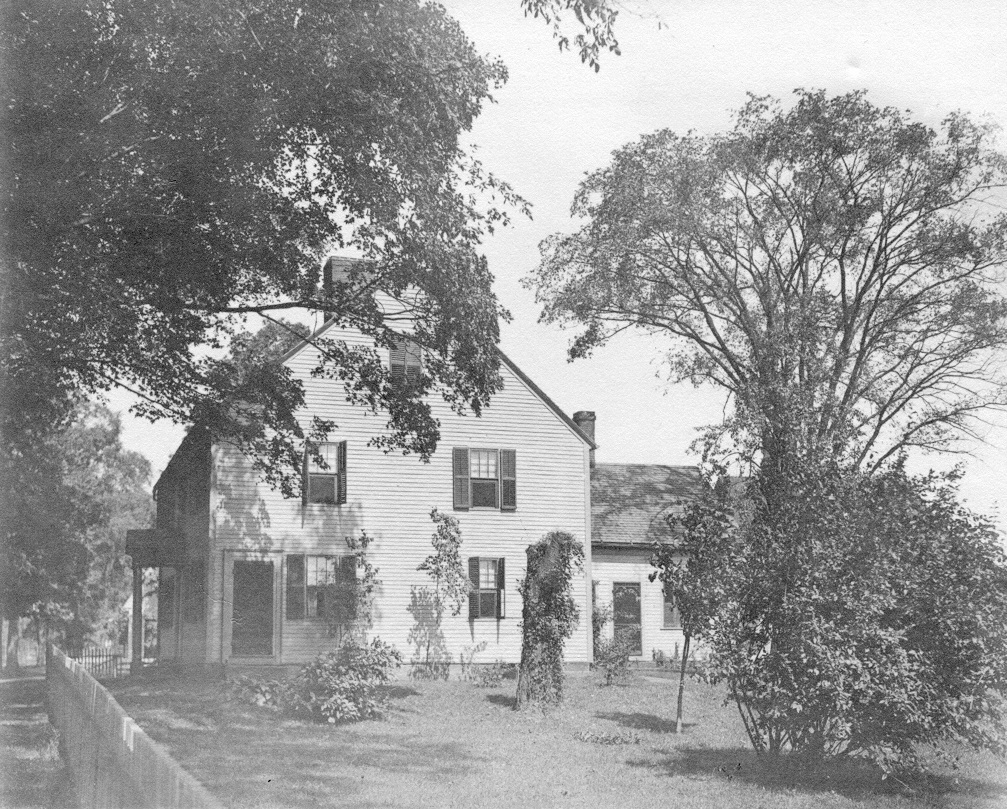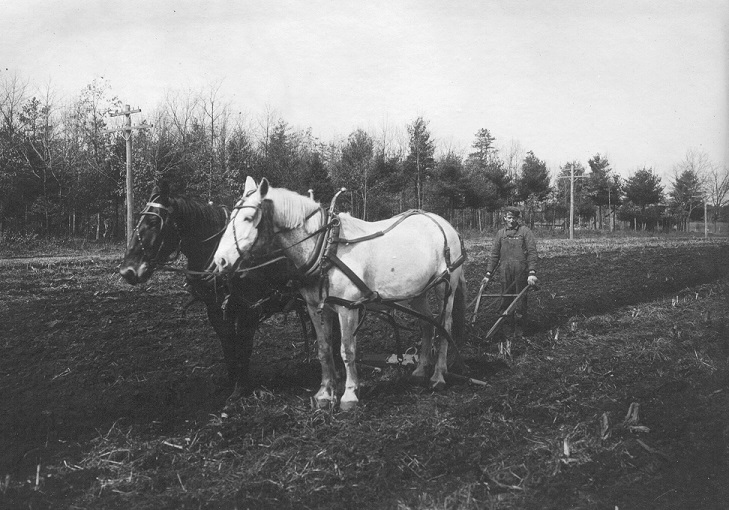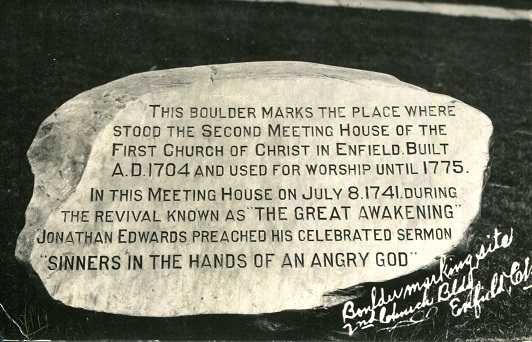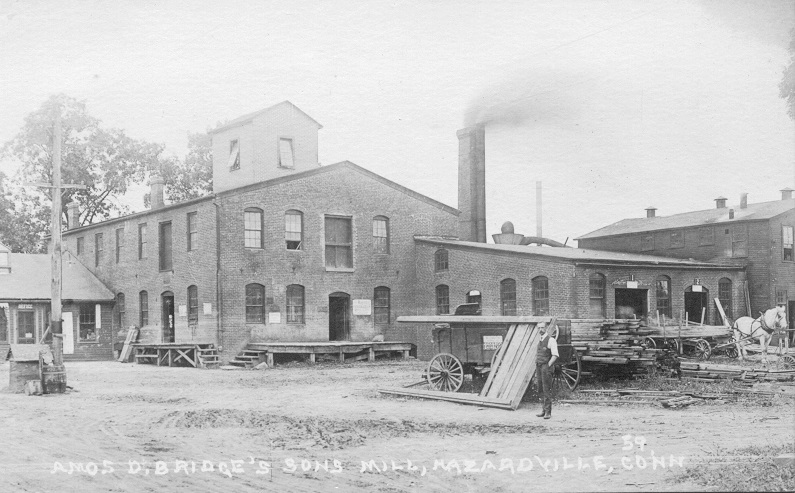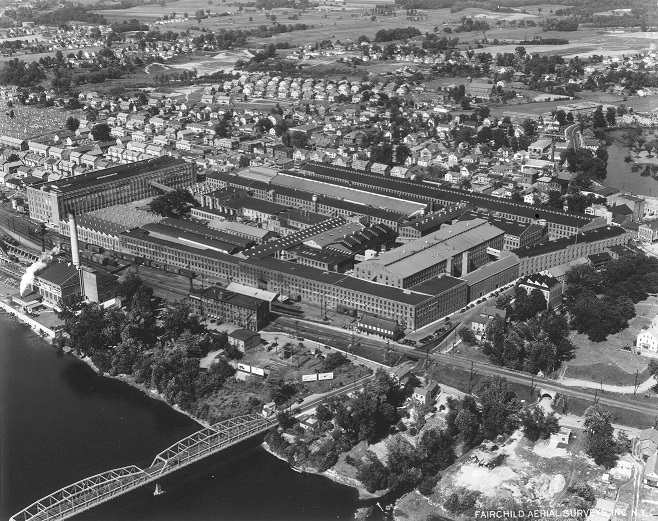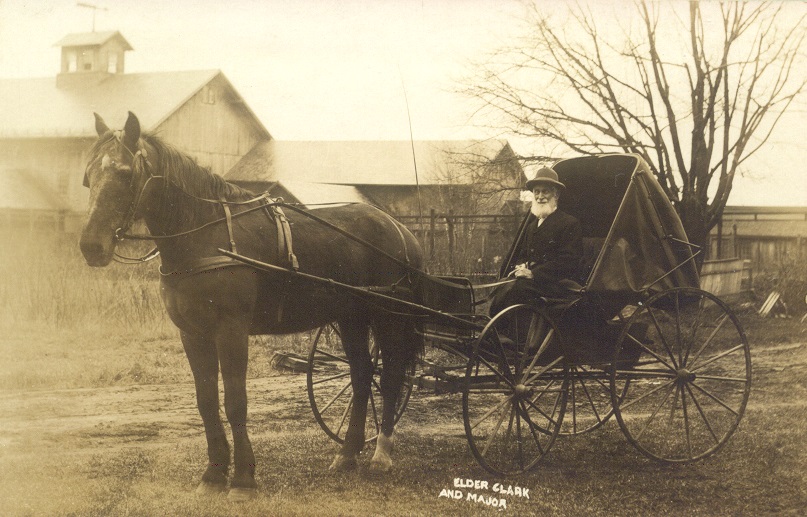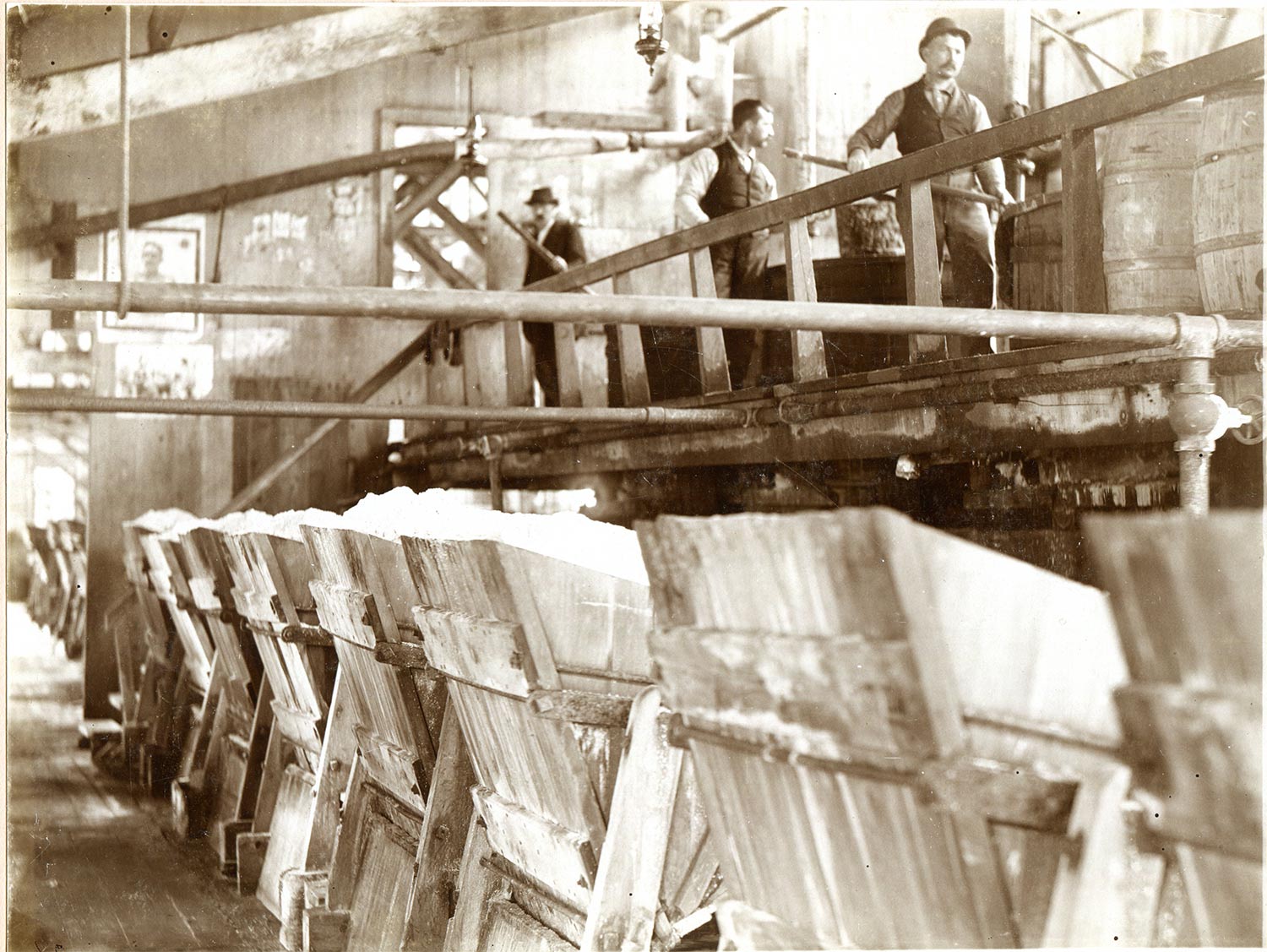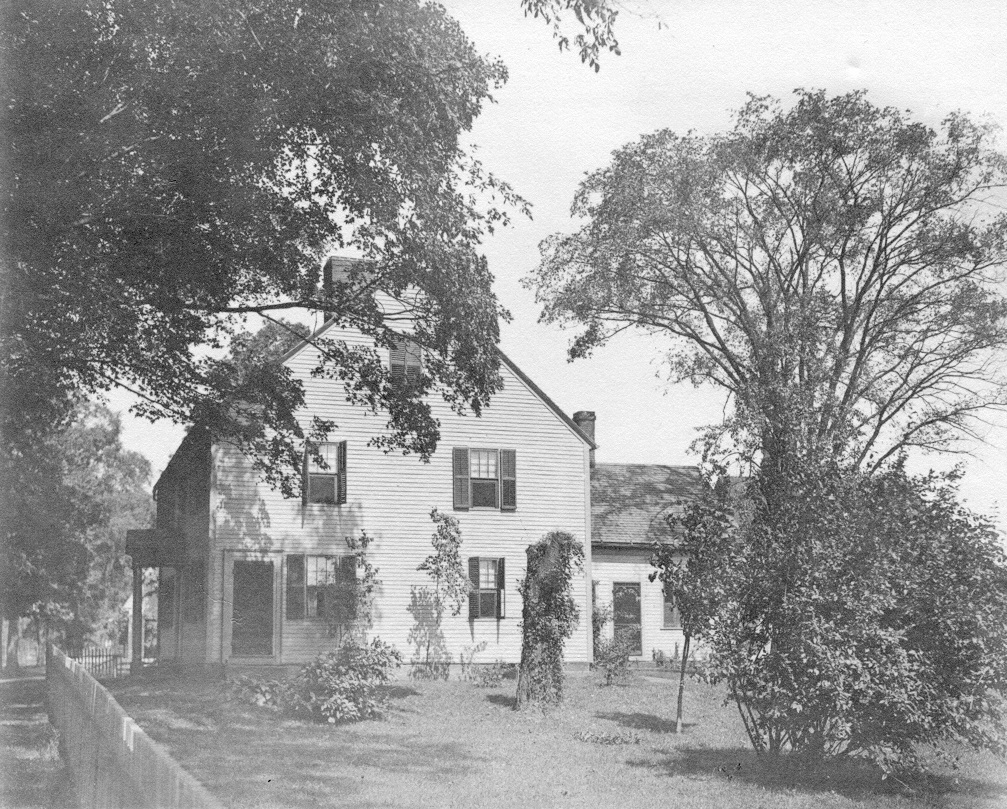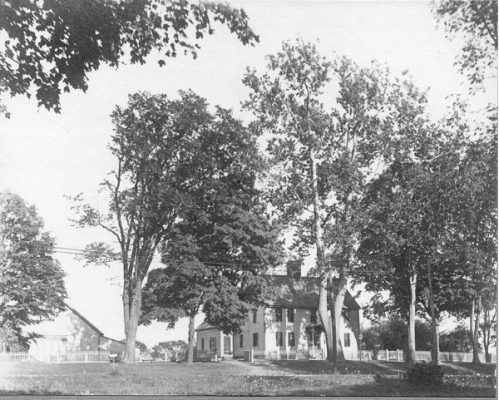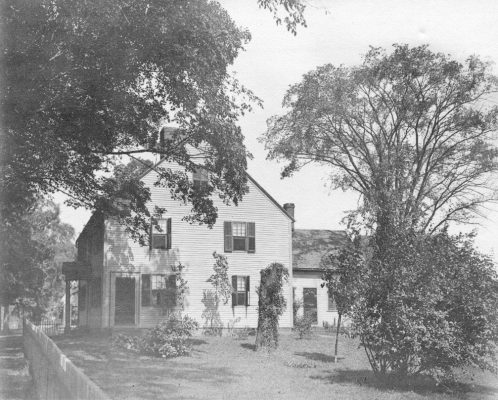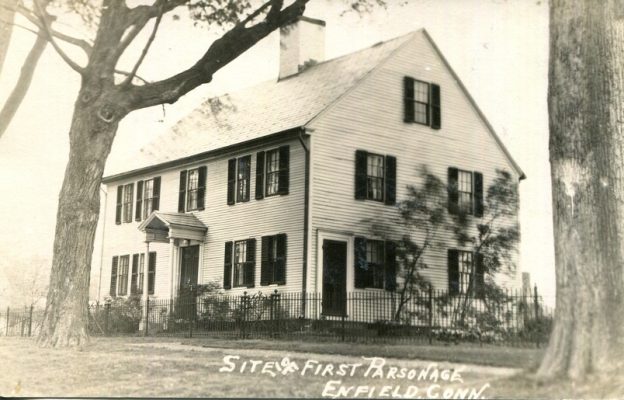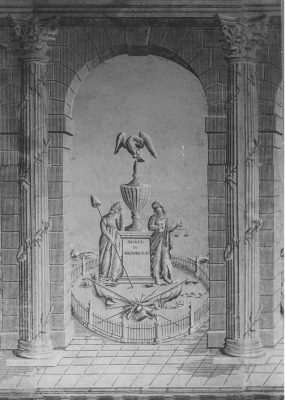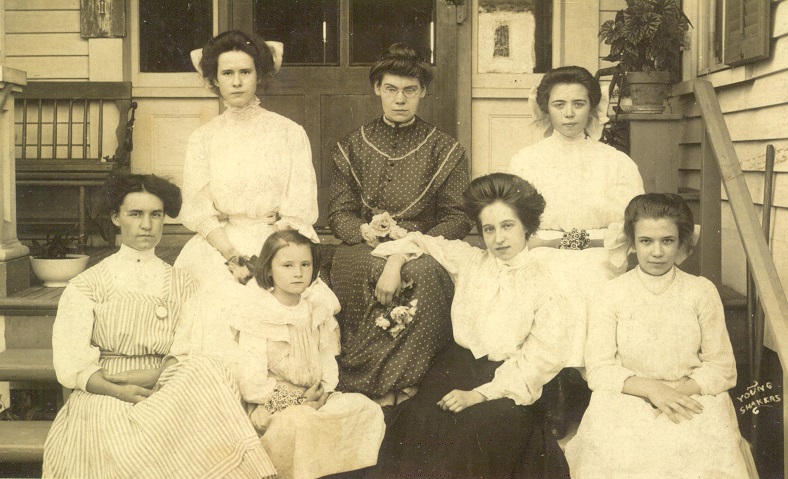
The following story was first published Thursday, August 31, 1865 in The Independent, a New York newspaper. It is an account of a visit to the Enfield, Connecticut Shaker community.
DURING a recent tour for recreation and pleasure, I took occasion, while near their community, to visit the Shakers at Enfield. This pleasant town is located on the northern Connecticut tier, and forms a part of that fine agricultural valley which lies between Springfield and Hartford—being about twelve miles south of the former, and, I should judge, twenty-five miles north of the latter city. The carriage-ride from Rockville, in Tolland County, to Enfield, passes over that famous alluvial tract on the Connecticut river [sic] which is so largely devoted to the culture of the “seed-leaf” tobacco, but which also lends its fertility in making corn, oats, and other crops, with equally successful results. If there are any better farms in the state, where a fine soil is joined to careful culture, they have escaped my observation.
The region which the Shaker settlement covers is the very cream of the upper valley. The road, already indicated, which I took to reach it, is lined with thrifty farms, and the landscape on every side is one of quiet and bewitching beauty. The far-off hills lie bathed in a dreamy languor, while the intervening valley justifies the ideal Arcadia which graces the poet’s verse. By the wayside we passed the pink-faced eglantine, and other summer beauties. Here it may be said emphatically,
“O’er ten thousand thousand acres
Goes light the nimble zephyr,
The flowers—tiny sect of shakers—
Worship him ever.”
The Shaker settlement embraces about three thousand acres of the best land in the township, which is tilled with remarkable care and industry. There are five groups of buildings, located on the north, south, east, west, and center of the farm; but one group, not being needed by the community, is rented to worldly tenants. The family which I visited was the northern one. The reception they gave us was simple and unostentatious, but cordial and friendly. There were four in our party, and we read as we entered the hospitable threshold the holiday which beams in the friendly eye. We were met by one of the sisters at the trustee’s house, who, knowing our errand of observation, took every pain to make our stay pleasant and interesting.
The buildings here, which consist of a dairy, work-house, school, trustee’s office, etc., besides barns and other out-buildings, form, in part, something like a hollow square. They are of the plainest architecture, and furnished plainly within, but the scrupulous air of neatness, inside and out, is the feature which first strikes every observer. In the government of each family there are three or four elders and deacons, and two lady-superiors, or deaconesses, who take upon themselves the authority. As the men were mostly in the harvest-fields at work, our talk was principally with the lady-superiors, “Sister Martha,” and “Sister Anna.” We were taken all over the buildings, allowed to inspect the different lodging-rooms and their furniture, and were shown through the dairy and work-house. The school-house, I believe, was not in operation, as I saw several of the younger sisters there sewing, while passing near the window of the building.
To all of our questions Sister Martha, who accompanied us on our survey, gave brief but intelligent answer, frequently using quaintly-sounding “yea” and “nay,” which they prescribe in place of the Gentile yes and no. I took up a substantial piece of blanketing on one of the beds, examined the braided rugs and carpets, and asked if they were home-made.
“Yea; we make all these things.”
We expressed surprise at the perfect cleanliness of the floors and windows in the rooms far up in the building; but Sister Martha, who had charge of them, said, “Nay;” though agreeing that she had tried hard to keep them clean. I made an unsuccessful effort to find a cobweb, or a little speck of dirt, and I am sure one might roll on the floors in a suit of white linen, and rise from them unsoiled. The floors are not all carpeted, and where visible are made of tightly-matched pine or spruce, shaved smooth, and shining with a peculiar polish.
The dairy, where they make butter and cheese, is a building in the rear, which I should say, exhibited thrifty housewifery, were there any wives here. At the work-house two or three of the sisters were busy picking over blackberries. One saluted Sister Martha with: “See; we have got some blackberries;” and seemed happy to make this announcement. Eating now and then as they separated the poor ones and the stems, I imagine Queen Victoria, stealing away to market for a dozen eggs, as it is said she has secretly done, could not be more cheerful and contented. They had just taken from the oven a fine baking of bread, and so much is this prized by some of the world’s people that they come often to buy it. A lady was negotiating for a loaf as we passed in the door, but her importunity, after they had stated there was none to spare, was so excessive it failed.
The garden is a feature here. It is filled with all vegetables and the seeds thereof. Every plant that has virtues, medicinal or other, is respected. I saw one of the elder brethren, an old man over sixty, drive a horse-cart to the barn, loaded with catnip. This they put up in some form and sell. There were little boys in the garden, adopted from the world, working in the strawberry-beds, thinning and tending the plants. Sister Martha asked them if they were at work, to which they said, “Yea.” Two or three other questions she asked them in a kindly tone, and they replied, “Yea.” These little fellows were dressed in costume of the sect, and had their hair cut close in front, with long locks tapering down behind. A young man of twenty-one, “a most excellent brother,” Sister Martha told us, who walked by us, had the care of these boys. As I looked on his serious face just blossomed to manhood, and his stout, healthy form, I wondered if his ideal of life and happiness was met by the creed to which he had given so early his vows. But he passed on, with an earnest step, to his labor, as if no ripple of hilarity but a pensive, inward meditation held his mind.
When we returned to the trustee’s house, accepting a few flowers which Sister Martha gathered for us on the way, Sister Anna announced that our supper was ready. The meal was not set in the regular dining-room—perhaps she thought we should not like the hard benches where the men sat by themselves—but in a pleasant sitting-room opposite. Everything was of the most genuine and substantial make. The bread, and cake, and cheese would have taken premiums at a county fair; and they also brought forward some excellent pie, delicious canned peaches, and all the et ceteras that go to make up a sumptuous meal. Sister Anna had been so mindful of our fatigue as to put on a large decanter of whortleberry wine four years old, which I happened to call “delicious,” whereat Sister Martha went to a generous cupboard near by, and handed us a decanter of metheglin. I asked if both were of their own make, and the age.
“Yea,” said Sister Martha; “it is four years old. If you like it, I will leave the decanter.” A better collation need not be set before a king—and I doubt Jeff. Davis had as good a one, even in the palmy days of secession.
We were taken into the Hall, where they hold religious worship. The meeting-house is with the center family; but there are sometimes rainy days, and feeble members who cannot ride out—and this room is for those who cannot go to the regular worship. Its floor is polished like glass, and when I rubbed my hand over it the effect was like touching the surface of a mirror. I was sorry not to witness their religious exercises, but these are held only on Sunday. A doctrinal work, called “The Millennial Church,” lay on the table in one of the rooms. I took it up, and was sufficiently interested to read the whole chapter which upholds the cardinal virtue of a virgin life, and which makes the celibate condition essential to sinlessness. The sincerity of the writer, and the plausibility with which even scriptural citations were made to do duty, were worthy of admiration. Do not put it to the account of bachelorhood, Mr. Tilton, if I say that doctrines much more universally held by the world are not half so ably supported. You know what St. Augustine says: “Null falsa doctrina est, que non aliquid veri permisceat.”
I asked Sister Martha if this book was the bible of their religion. She said: “Nay; it is a statement of the brethren.” I asked if there was not some book that contained the sermons or sayings of Ann Lee, (or “Mother Lee,” as she is called, the founder of the sect,) in a collected form. She said: “Nay; you know Ann Lee was a very illiterate woman. She wrote no book; but many things which she said have been penned by different writers.” Remarking that her sect resembled the Quakers outwardly, from which it is an off-shoot, she said “Yea; but we are very different. I think the Quakers are a sincere good people, and live up to what light they have.”
The Shakers in this community number about two hundred—some fifty to a family. Each household has its own section of land to till, keeps its own treasury, and is independent in a large measure.
Our visit terminated very pleasantly, and we took our departure late in the day. As I left behind me their thrifty farms, and sleek cattle, and generous crops, I could not help feeling an increased respect for this strange people. In error they undoubtedly are; but they prove their sincerity by a life against nature, and by merging, as no other people have done before, all distinction of “mine” and “thine” in a large fund and domain of which they are only the supported tenants.
The Old Town Hall Virtual Museum

